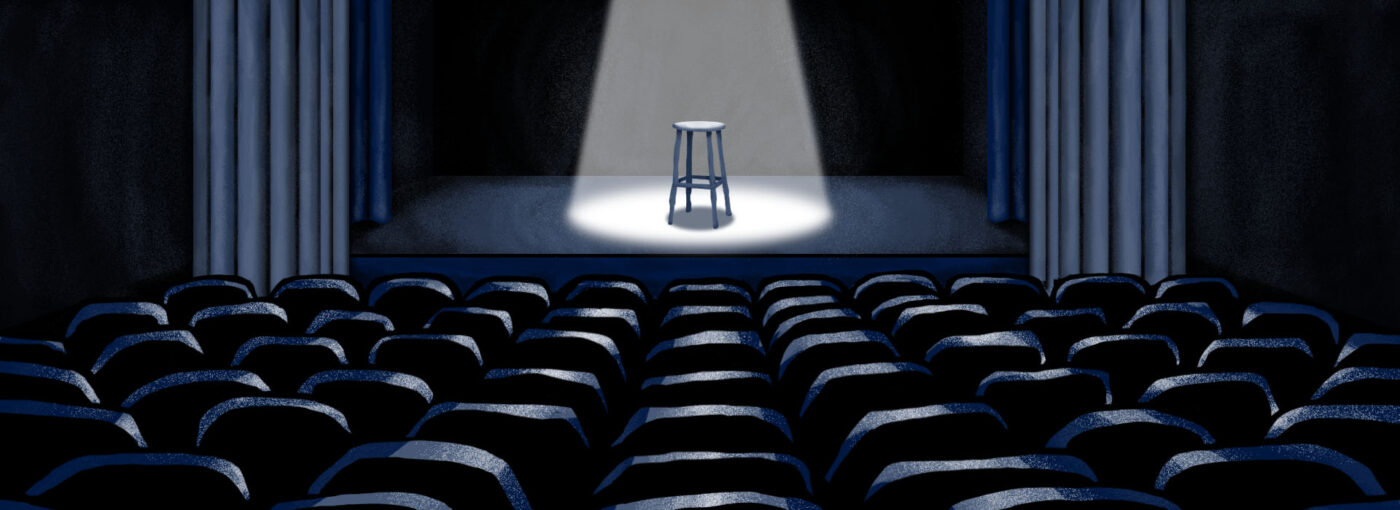Meeting George Fleming, the founder of music fundraising campaign ‘Save Our Scene’ on Zoom as the Autumnal sun set at 5pm was enough to get me out of my lockdown hole. George’s energy and enthusiasm was palpable through the fuzzy screen. He reminded me of Tigger – bouncing off the walls, telling me his hopes and dreams for the movement, which includes the SOS stage at Glastonbury. Nothing was out of reach, even though we were in the middle of a global pandemic.
As someone who has worked in the music industry for six years, it is easy to become sceptical when an outsider charges in and starts a ‘movement’. But sometimes, it takes the fandom of a few to move mountains. “Music is important to me because it spreads love and togetherness, no matter where you’re from or what language you speak. Nothing else has the same effect on people and I’m not sure life would be worth living without it,” said George in one long breath. And it reminds me of why I got into the music industry in the first place.

This year Covid-19 has left the live sector of the music industry on its knees. It was only a year ago that the live music scene hit a record high, worth £1.1bn to the UK economy, with total concert attendance of 24.9M. Meanwhile festival-going soared 23% year-on-year to 4.9M. Now the lights are out, venues are empty, and fans are at home, rabidly streaming live experiences, trying to get their fix, but failing to feel satiated. As a music publicist, I have watched great bastions of music journalism fold and great music critics made redundant. It’s the day the music industry went on fallow. But this isn’t the day the music died. Music became our solace, therapy and soundtrack to the crisis, remaining the bedrock of British culture.
According to lobbying group UK Music, the industry contributes £5.2 billion to our economy each year, generating £2.7 billion of British exports, and supporting 190,000 jobs across the UK. “It is an economic powerhouse, our music industry delivers for Britain – it needs saving”, says new chief executive of UK Music Jamie Njoku-Goodwin. The government’s answer to Saving Our Scene was setting up a £1.57 billion Culture Recovery Fund (bearing in mind Germany has pledged £50 billion support package to their arts) with The Music Venue Trust announcing that 89% of England’s grassroots music venues who applied for the fund were successful. But like any recovery, there will be venues and people who will fall through the gaps.
As an impassioned music fan, the gaps permeated George’s dreams. He woke up mid pandemic and shouted to himself: “What do I really love?!” His answer, naturally, “music!”. He typed Save Our Scene into Instagram the next day and the handle didn’t exist, so he created an account and became obsessed, and determined to help. His mission is to build the fundraising platform into a community where music lovers can show their support for their local music communities, as well as somewhere musicians and creatives can come together and create. Starting in London, George plans to have hubs in Leeds, Manchester, and Bristol.
But the industry can only function if artists are nourished, and have enough money to eat. Although a few artists I work with have seen this period as a recalibration opportunity to get back to the essence of what they do – create music (without distraction) – how will their art resonate and embed into the memories of fans virtually? How will they make enough money to sustain music creation if they are not touring? Help Musicians is an independent UK charity for professional musicians of all genres, from starting out through to retirement, and is the only charity that is currently supporting musicians. George partnered with the charity because it resonated with his SOS mission.
George galvanized 400 cyclists to ride from Hyde Park to Parliament Square in October, launching #OnYourBike as a first touch point. “The atmosphere was amazing, everyone was wearing masks and were super respectful of the social distancing rules. We danced down Oxford Street, then down Regent Street to Piccadilly Circus and Trafalgar Sq. Josh Parkinson DJ’d and we did three laps of Parliament Square.” He has now set up an initiative to help from the comfort of your home; getting artists and fans to share a favourite memory on instagram and nominate four friends to do the same. “The idea is to get music lovers thinking about happy musical memories which will hopefully highlight how much we need to protect the industry”.
It’s hard not to think about the memories that weren’t formed this year. The people that didn’t get to meet in the queue at the gigs. The crowds that didn’t get to cheer. The songs that didn’t get their debut. As the German romantic, Jean Paul Friedrich Richter, writes, “music is the moonlight in the gloomy night of life.” Music has guided us through this long and treacherous tunnel we’ve been forced to live in for nine months, and will lead us to the light at the end. We must Save Our Scene.

See more of Elspeth’s work at both Her Hustle and inside/out PR.
See more of Raquel’s work on her instagram

